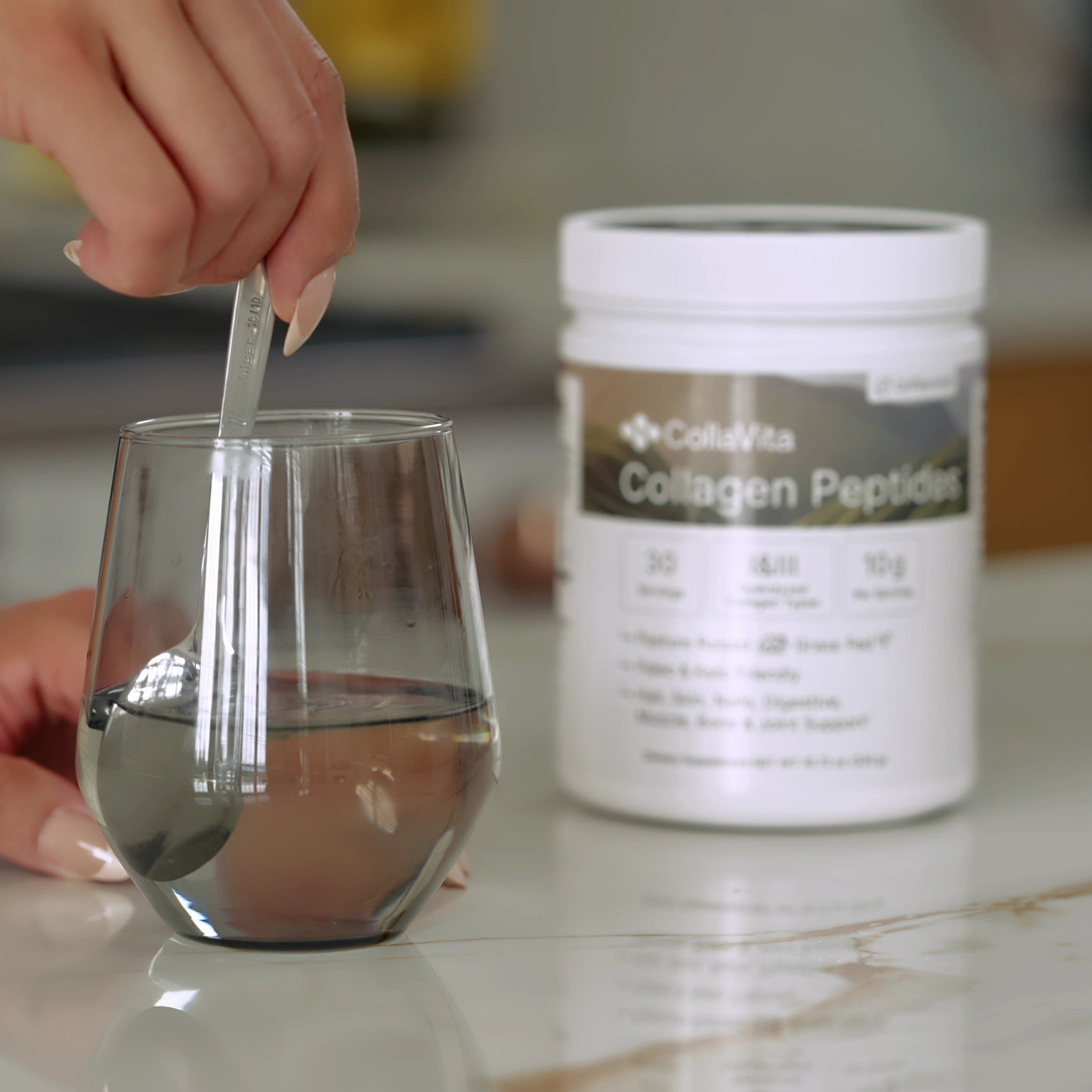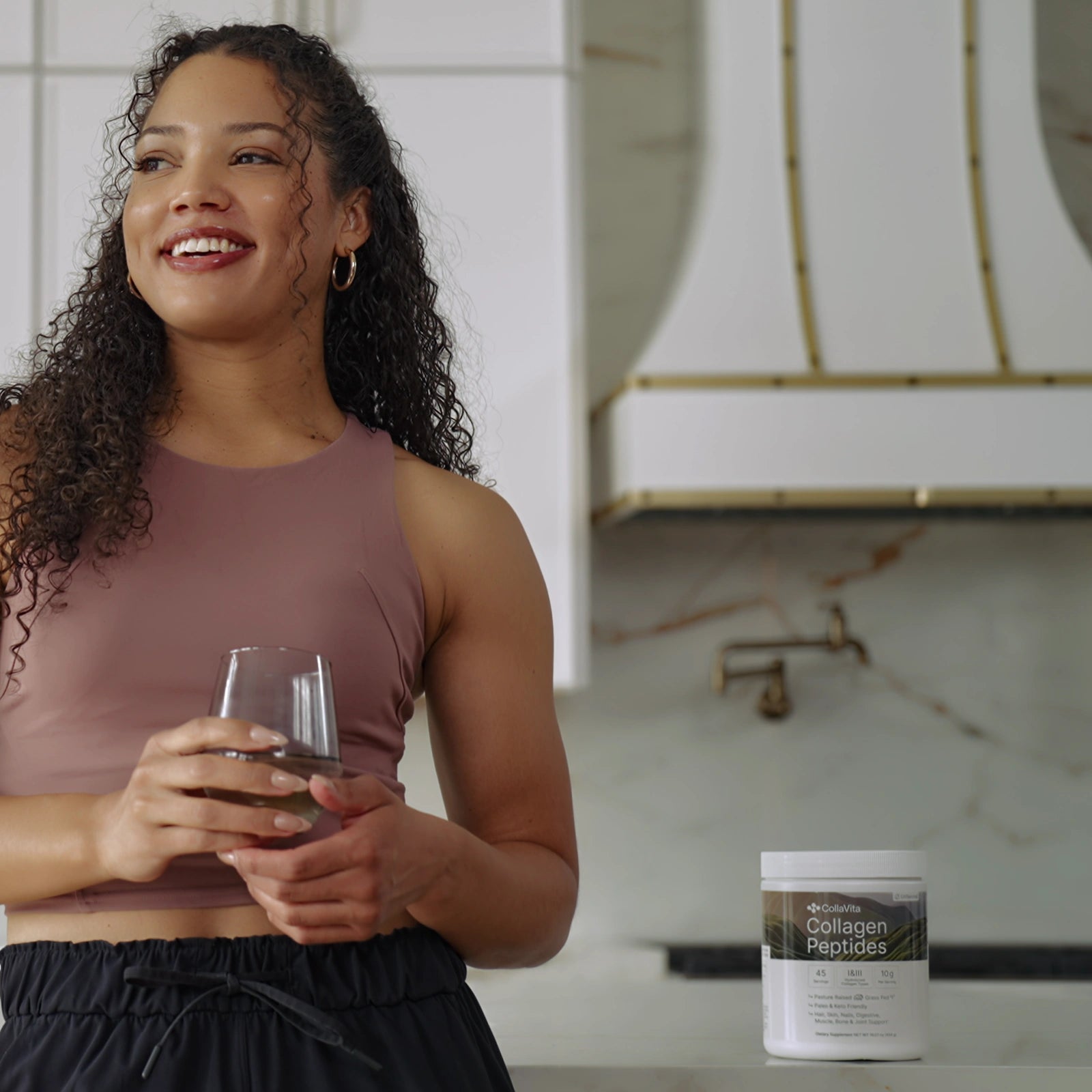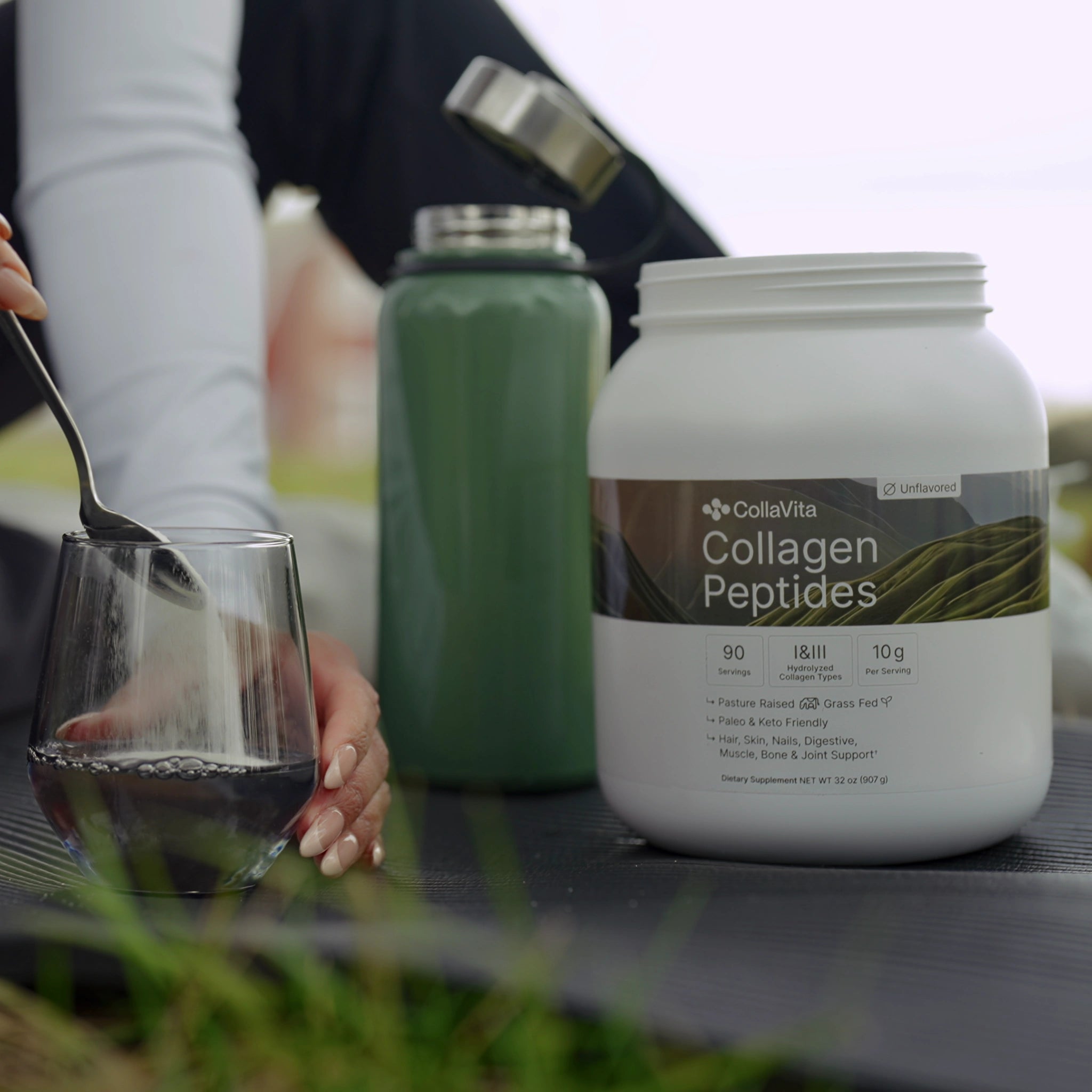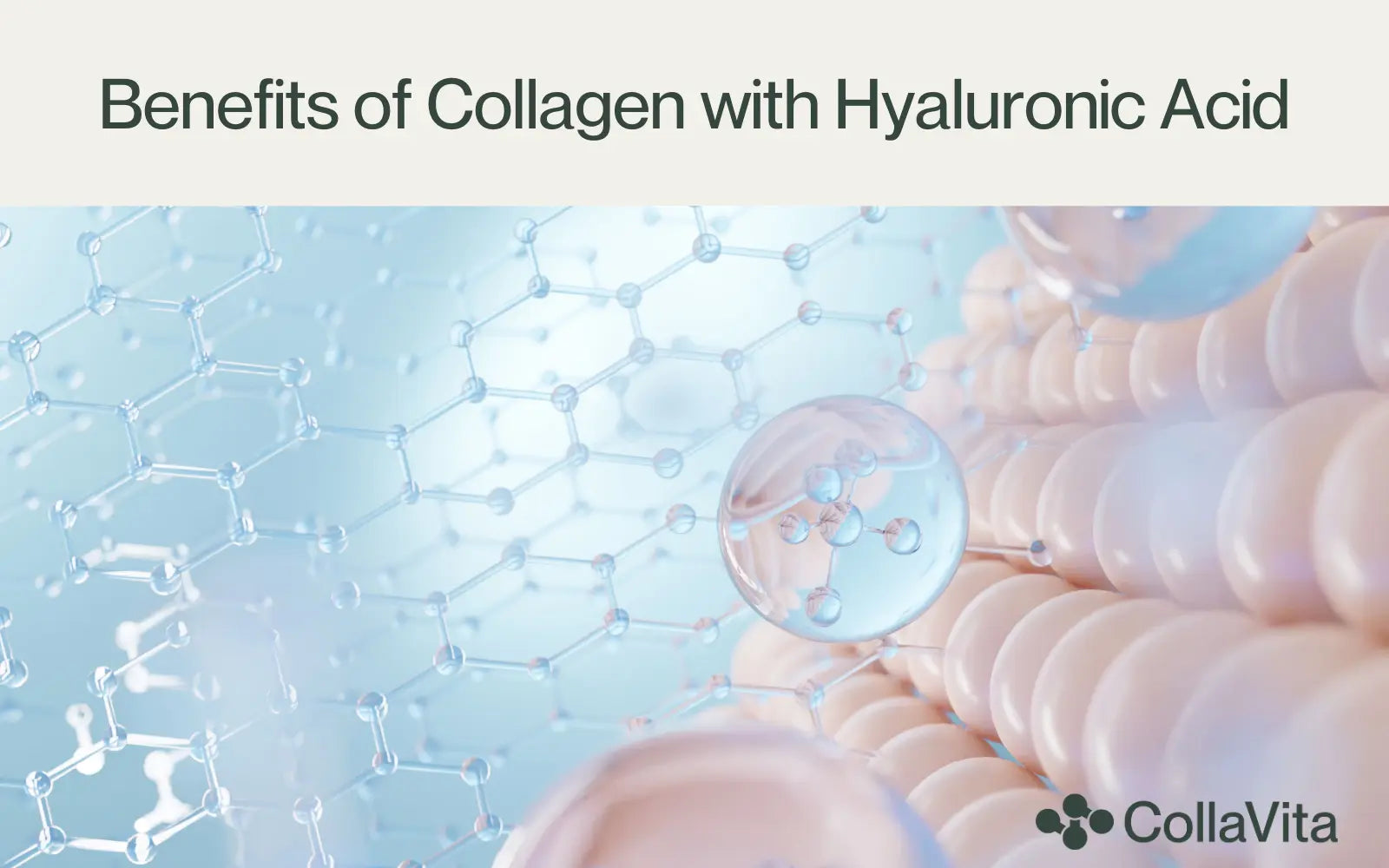How Can You Naturally Boost Collagen Production?
Ensuring adequate protein intake through your diet is essential to naturally rebuild collagen production. Protein sources such as nutrient-rich meats, legumes, nuts, and soy products are vital for vegans and vegetarians to naturally obtain collagen. Beta-carotene, found in foods like sweet potatoes, can significantly boost collagen synthesis. Chlorophyll, present in green leafy vegetables such as spinach, also supports collagen production, as do dark leafy greens. Furthermore, maintaining a daily intake of approximately 95 milligrams of vitamin C is crucial for natural collagen formation. For those following a plant-based diet, vitamin B12 helps increase collagen levels.
There is also mounting evidence that collagen-rich ingredients made from animal by-products have a significant impact. As a potential effective solution for collagen taking, transforming collagen into bioactive peptides has a significant influence, according to the study in Critical Reviews in Food Science and Nutrition (1).
When incorporated into the diet, type III collagen peptides help support skin elasticity, joint health, and overall tissue repair, effectively contributing to the natural boost of collagen production. By incorporating these scientifically validated ingredients into everyday foods, we can enjoy the health benefits of increased collagen levels, which enhance the health of our skin and joints.
Which Foods Are High In Collagen-Boosting Nutrients?
Bone broth, green leafy vegetables (spinach, kale, broccoli), protein-rich fish (especially mackerel and salmon), vitamin B12, beta-carotene in sweet potatoes, chlorophyll in spinach, vitamin C in red peppers, soy products, tomatoes, and vitamin B12 are some of the what foods contain high collagen production.
On the other hand, citrus fruits, leafy greens, berries, and high-quality protein sources are excellent examples of collagen-rich foods that provide vitamin C, antioxidants, and amino acids—ingredients that support collagen synthesis from within, according to a study in Nutrition Research (2). Foods that provide high levels of vitamin C, antioxidants, and essential amino acids can naturally stimulate the body's collagen synthesis, thereby enhancing collagen skin elasticity and joint health. Participants who consumed a liquid nutraceutical blend containing hydrolyzed fish collagen, vitamins, antioxidants, L-carnitine, glucosamine, and chondroitin sulfate experienced a significant improvement in their skin and joint health.
Collagen is more than just a protein that supports skin and joint health; it’s a versatile ingredient widely used in food production to improve texture, stability, and nutritional value, according to a study in the International Food Research Journal (3).
Can Supplements Help Improve Collagen Levels?
In the case of supplements with hydrolyzed collagen, the answer is definitely yes. Consistent with the results of 19 clinical trials including more than 1,100 people, those who took hydrolyzed collagen supplements for 90 days saw marked improvements in skin hydration, elasticity, and wrinkle appearance, according to a study in the International Journal of Dermatology(4). This study highlights that regular oral intake of hydrolyzed collagen can effectively combat the physical signs of skin aging.
Whether you're looking at how to increase collagen skin texture, boost hydration, or reduce wrinkles, the evidence suggests that collagen supplementation is a promising approach to maintaining healthier, more youthful skin. Along with a healthy diet and active lifestyle, collagen supplements can help keep your skin's elasticity and overall look.
How Do Lifestyle Choices Impact Collagen Production?
Collagen-boosting foods are essential for preserving skin elasticity and firmness; however, intrinsic and external factors can contribute to its degradation over time. The choices we make daily profoundly affect collagen stimulation and subsequent skin aging.
As we get older, our skin loses some of its elasticity and becomes more delicate as a result of environmental and hormonal changes, including things like smoking and long-term exposure to ultraviolet light, according to a study in the Maturitas (5). All five of these things speed up the breakdown of collagen. On the flip side, the study underscores that preventive lifestyle measures—such as consistent sun protection, a skincare routine supporting collagen synthesis, and quitting smoking—can substantially mitigate these effects. Some topical treatments, such as retinoids, can rejuvenate the skin by encouraging the production of new collagen fibers.
Integrating intelligent lifestyle decisions can consequently yield a substantial impact. Protecting your skin from detrimental UV rays, refraining from smoking, and utilizing collagen-stimulating skincare products contribute to preserving natural collagen levels vital for sustaining youthful, resilient skin. This research underscores that our habits can expedite skin aging or contribute to skin health by preserving natural collagen.
How Does Smoking Affect Collagen Level?
Tobacco use and other unhealthy lifestyle habits can deplete collagen and worsen skin health in the long run. Smoking causes an imbalance in the skin’s collagen metabolism: while it decreases the synthesis of new collagen, it simultaneously increases the production of matrix metalloproteinases (MMPs), according to a study in the Journal of Dermatological Science (6).
These enzymes actively degrade collagen, elastic fibers, and other vital components of the skin’s extracellular matrix. In addition, tobacco smoke introduces reactive oxygen species (ROS) that exacerbate tissue damage and accelerate aging. As a result, smokers tend to experience reduced skin elasticity, deeper wrinkles, and a generally more aged appearance—phenomena often described as premature skin aging.
Can Regular Exercise Improve Collagen Production?
Exercise-induced biochemical changes enhance collagen levels and tensile strength in ligaments, according to a study in The Journal of Physiology (7). The investigation about how to boost collagen production revealed that engineered ligament constructs markedly increased growth hormone (GH) levels, augmented collagen content by 19%, and improved mechanical properties, including maximal tensile load and ultimate tensile strength, in comparison to constructs treated with resting serum. A key finding is that the positive effects on collagen were linked to the activation of the PI3 kinase/mTORC1 and ERK1/2 signaling pathways. This indicates that exercise promotes collagen synthesis through hormonal and metabolic changes.
These findings indicate that regular exercise can positively influence collagen production, contributing to muscle and tendon health and improving the integrity and strength of connective tissues.
Does Sleep Play A Role In Maintaining Collagen?
Getting enough sleep is equally important to keep your skin's collagen and general appearance in good shape. The skin health of 60 healthy women was analyzed by dividing them into good and poor sleepers based on their sleep duration and quality. The results indicated that those with poor sleep quality exhibited more pronounced signs of intrinsic skin aging, as evidenced by a higher degree of skin damage and wrinkles, according to a study in the Clinical and Experimental Dermatology (8). Moreover, poor sleepers reported lower satisfaction with their appearance and significantly impaired skin barrier recovery following environmental stressors such as ultraviolet exposure.
While the study did not directly measure collagen and sleep, the enhanced barrier function and reduced skin aging observed in good sleepers are closely tied to collagen integrity. Therefore, by supporting faster skin recovery and reducing aging signs, quality sleep likely plays an indirect—but crucial—role in preserving collagen levels. Ensuring you get a consistent 7–9 hours of quality sleep may bolster your skin’s ability to repair itself, maintain its elasticity, and, ultimately, keep your complexion looking youthful.
What are the Main Causes of Collagen Loss?
Here 10 causes of collagen loss;
1. Age
Reduced collagen production is a natural consequence of aging. In one's twenties, collagen synthesis begins to fall and continues to fall at a rate of around one percent per year.
2. Exposure to Ultraviolet Rays
Ultraviolet light has the potential to accelerate collagen breakdown in the skin by triggering free radical formation and DNA damage in cells. This process can also increase the synthesis of enzymes that break down collagen and elastin fibers in the skin, which can result in wrinkles and skin thinning. However, sunlight, especially red and near-infrared rays, also has collagen-boosting benefits. Therefore, it is important to protect yourself from sunlight by taking the necessary safety precautions.
3. Smoking
Smoking induces collagen degradation by obstructing adequate oxygen delivery to the tissues. It becomes more difficult for tissues to regenerate and increases the likelihood of damage because of smoking. Collagen loss can also occur as a result of drinking too much alcohol.
4. Vitamin and Mineral Deficiencies
Vitamin and mineral deficiencies (especially vitamin C, zinc, copper, and magnesium) can lead to collagen loss. In addition, insufficient intake of essential fatty acids (especially DHA and EPA) can also affect collagen levels.
5. Blue Light
Blue light toxicity and electromagnetic fields (EMFs) produced by electronic devices and artificial lighting can adversely affect collagen levels. So, it is important to limit exposure to blue light and EMFs.
6. Lack of Sleep
Lack of sleep affects the body's collagen repair and production. Our body produces collagen while we sleep, so it is important to get enough sleep.
7. Lack of Exercise
Lack of exercise can lead to collagen loss. Exposing the body to mild stresses can increase collagen production.
8. Stress
Stress can cause the body to produce the hormone cortisol, which can reduce collagen production. Collagen production decreases when the body's resources are used to fight stress and inflammation.
9. High Sugar Consumption
High sugar consumption can affect collagen by causing inflammation in the body. Sugar causes collagen to harden and break down, weakening the skin foundation and can trigger premature skin aging. Simple carbohydrates and processed foods can also trigger inflammation in the body.
10. Genetic Factors
Genetic factors can also affect the body's ability to produce collagen. However, since genetic factors are out of our control, focusing on a healthy diet and lifestyle changes is important.

What Skincare Treatments Can Help Stimulate Collagen?
The formation of collagen declines with age and exposure to environmental variables. The good news is that there are numerous ways to find solutions how to restore collagen in the face and boost the synthesis of collagen. Some of the skincare procedures that have been shown to increase the benefits of collagen include;
Chemical Peels
Chemical peels involve applying certain chemical solutions to the skin to remove its outer layers. This process exfoliates dead skin cells and brings new, healthier skin cells to the surface. High-potential chemical peels can stimulate the dermal layer to produce new collagen, making younger, thicker skin appear. They might also lessen fine lines and wrinkles. For more intense results, cosmetologists can apply these peels in a clinic or office.
Laser Treatments
Laser treatments aim to stimulate collagen synthesis in the dermis by delivering energy (heat) to the skin. Devices such as fractional lasers and IPL (Intensified Light Pulse) can heat the dermis layer, promoting collagen formation. By creating controlled micro-damage, these lasers facilitate the skin’s natural rejuvenation and repair processes, producing new collagen fibers. More intensive laser treatments, known as resurfacing lasers, exfoliate the skin’s surface, revitalizing both dermal and epidermal layers. This procedure effectively addresses fine lines, wrinkles, pigmentation issues, and sun damage.
Microneedling
Microneedling is a therapeutic technique that promotes collagen synthesis by inducing controlled injury to the skin using minuscule needles. These needles penetrate down to the upper dermis layer of the skin, activating the skin's self-repair mechanism, and thus the formation of new collagen begins. Furthermore, microneedling is safe for all skin types as it is performed without stripping the skin surface. This makes it a preferable option for more sensitive or darker skin tones. The treatment effectively reduces the appearance of fine lines and wrinkles and improves skin texture.
Fillers
Fillers are substances injected under the skin, usually containing hyaluronic acid. They help reduce the appearance of wrinkles and fine lines by increasing the volume of the skin. By stretching fibroblast cells, they can trigger the skin's own collagen production. The effect of fillers can last 6–9 months or longer. They can also help improve the skin by increasing collagen production, even after one-time applications.
How Effective Are Collagen Powders And Drinks?
Like blowing up a balloon, collagen drinks supplements immediately affect the skin. More supple and healthier skin is the outcome of taking hydrolysate supplements sourced from pigs and fish, according to a study in the Nutrients (9). The study revealed that collagen hydrolysate also significantly improved the appearance of cellulite in women after 180 days. However, it was stated that this improvement only occurred in women with a BMI (body mass index) below 25 (normal weight).
To find out how you increase collagen, there is no need to engage in strenuous physical activity or make costly purchases; all that is required is the intention to do so. Simply adhere to a few healthy diets that contain collagen-containing components and follow a few basic guidelines.
Most importantly, evaluate the outcomes to see if your efforts were worthwhile. Results from collagen supplements become apparent after eight weeks, though they are not optimally effective at that point.
SOURCES
(1) Cao, C., Xiao, Z., Ge, C., & Wu, Y. (2021). Animal by-products collagen and derived peptide, as important components of innovative sustainable food systems—a comprehensive review. Critical Reviews in Food Science and Nutrition, 62(31), 8703–8727
(2) Anna Czajka, Ewa M. Kania, Licia Genovese, Andrea Corbo, Giovanni Merone, Cecilia Luci, Sara Sibilla, Daily oral supplementation with collagen peptides combined with vitamins and other bioactive compounds improves skin elasticity and has a beneficial effect on joint and general wellbeing, Nutrition Research, Volume 57, 2018
(3) Hashim, P., Mohd Ridzwan, M. S., Bakar, J., & Mat Hashim, D. (2015). Collagen in food and beverage industries. International Food Research Journal, 22(1), 1–8
(4) de Miranda, R.B., Weimer, P. and Rossi, R.C. (2021), Effects of hydrolyzed collagen supplementation on skin aging: a systematic review and meta-analysis. Int J Dermatol, 60: 1449-1461.
(5) Yusur Al-Nuaimi, Michael J. Sherratt, Christopher E.M. Griffiths, Skin health in older age, Maturitas, Volume 79, Issue 3, 2014.
(6) Akimichi Morita, Tobacco smoke causes premature skin aging, Journal of Dermatological Science, Volume 48, Issue 3, 2007, Pages 169-175, ISSN 0923-1811
(7) Daniel W. D. West, Ann Lee-Barthel, Todd McIntyre, Baubak Shamim, Cassandra A. Lee, Keith Baar First published: 18 August 2015
(8) P. Oyetakin‐White, A. Suggs, B. Koo, M. S. Matsui, D. Yarosh, K. D. Cooper, E. D. Baron, Does poor sleep quality affect skin ageing?, Clinical and Experimental Dermatology, Volume 40, Issue 1, 1 January 2015, Pages 17–22
(9) Bolke, L.; Schlippe, G.; Gerß, J.; Voss, W. A Collagen Supplement Improves Skin Hydration, Elasticity, Roughness, and Density: Results of a Randomized, Placebo-Controlled, Blind Study. Nutrients 2019, 11, 2494.

















